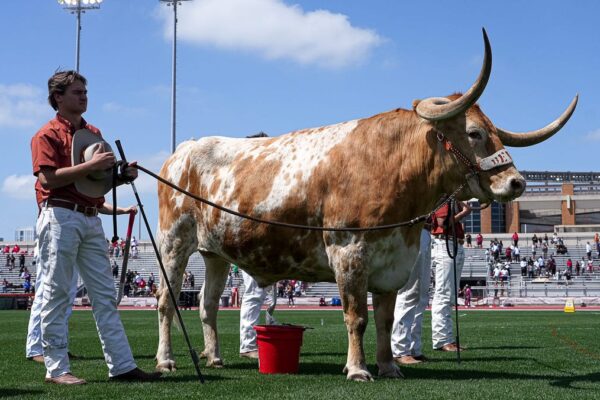Purdue University launches interdisciplinary, online Master of Science in Applied Geospatial Analytics
WEST LAFAYETTE, Ind. – To meet growing global demand for food production driven by a rising population, farmers and other agriculturalists are turning to data science to drive the next agricultural revolution.
Predictive analysis and artificial intelligence are among the tools of this smart-farming future. But if this future depends on data, it also depends on another key input – the knowledge and skill to use that data.
By offering a new, fully online Master of Science in Applied Geospatial Analytics, Purdue University aims to train a new generation of agricultural and other professionals capable of solving complex problems with innovative, data-driven solutions.
The interdisciplinary Master of Science in Applied Geospatial Analytics is offered through Purdue’s Graduate School in partnership with the College of Agriculture, College of Liberal Arts and Purdue Polytechnic Institute. Students in the online applied geospatial analytics master’s program will cultivate an array of technical and strategic skills related to geospatial data and intelligence, including strategic communication and data analysis.
“We find that technically sophisticated professionals often struggle with maximizing their impact on their organizations due to their inability to effectively engage key stakeholders,” said Bart Collins, clinical assistant professor of communication at Purdue and one of the faculty champions of the applied geospatial analytics program. “Our curriculum attempts to address this through its emphasis on corporate communication and leadership.”
The program’s 100% online curriculum was developed to accommodate working professionals who want to increase their skills in data analytics, data visualization, spatial data science, strategic communication and management. The Master of Science in Applied Geospatial Analytics will help prepare students for careers in areas such as civil and environmental engineering, agriculture, natural resource conservation, construction management and public utilities – among other areas where geospatial data skills are in demand.
“The need to understand and utilize an increasingly complex and large array of data is essential in agriculture and related sectors,” said Joe Anderson, professor of agronomy at Purdue. “Due to the massive amount of data that must be analyzed and the interdisciplinary nature of the modern agriculture sector, educational programs in agriculture need to emphasize skills in data science and digital agriculture.”
After completion of the program, students will earn the master’s degree in applied geospatial analytics as well as three graduate certificates in applied data analytics, spatial data science, and strategic communication management. The new master’s program leverages the three existing graduate certificates to help meet students’ professional and technical needs and provide a broad base of interdisciplinary knowledge that students can immediately apply in their careers.
“With this program, students will receive an excellent education in data and spatial data science that will put them in the top echelon for careers in a wide array of companies within agriculture and related sectors,” Anderson said.
By providing students with interdisciplinary skills and stackable credentials in the form of three graduate certificates, the Master of Science in Applied Geospatial Analytics increases graduates’ marketability. Courses are offered in geographic information systems, data visualization, data analysis, communication and leadership, crisis communication and more. All courses are taught fully online by Purdue faculty members from the College of Agriculture, College of Liberal Arts, and Purdue Polytechnic Institute.
The Master of Science in Applied Geospatial Analytics requires 30 credit hours of coursework that can be completed in as little as five semesters. Courses are offered in eight-week and 16-week formats for added flexibility. Additionally, the program offers summer courses so students can complete the degree faster.
“Many industries need professionals who have expertise in developing and analyzing large data sets and using them in a geospatial context,” said Anderson. “This program fulfills that need.”
Students interested in applying to the program have the option of starting in the fall or spring semester. More information about the online Master of Science in Applied Geospatial Analytics, including how to apply, is available on the program’s website.
Writer: Rachel Barton, 240-818-1189, barton53@purdue.edu
Sources: Bart Collins, bcollins@purdue.edu
Joseph Anderson, janderson@purdue.edu












